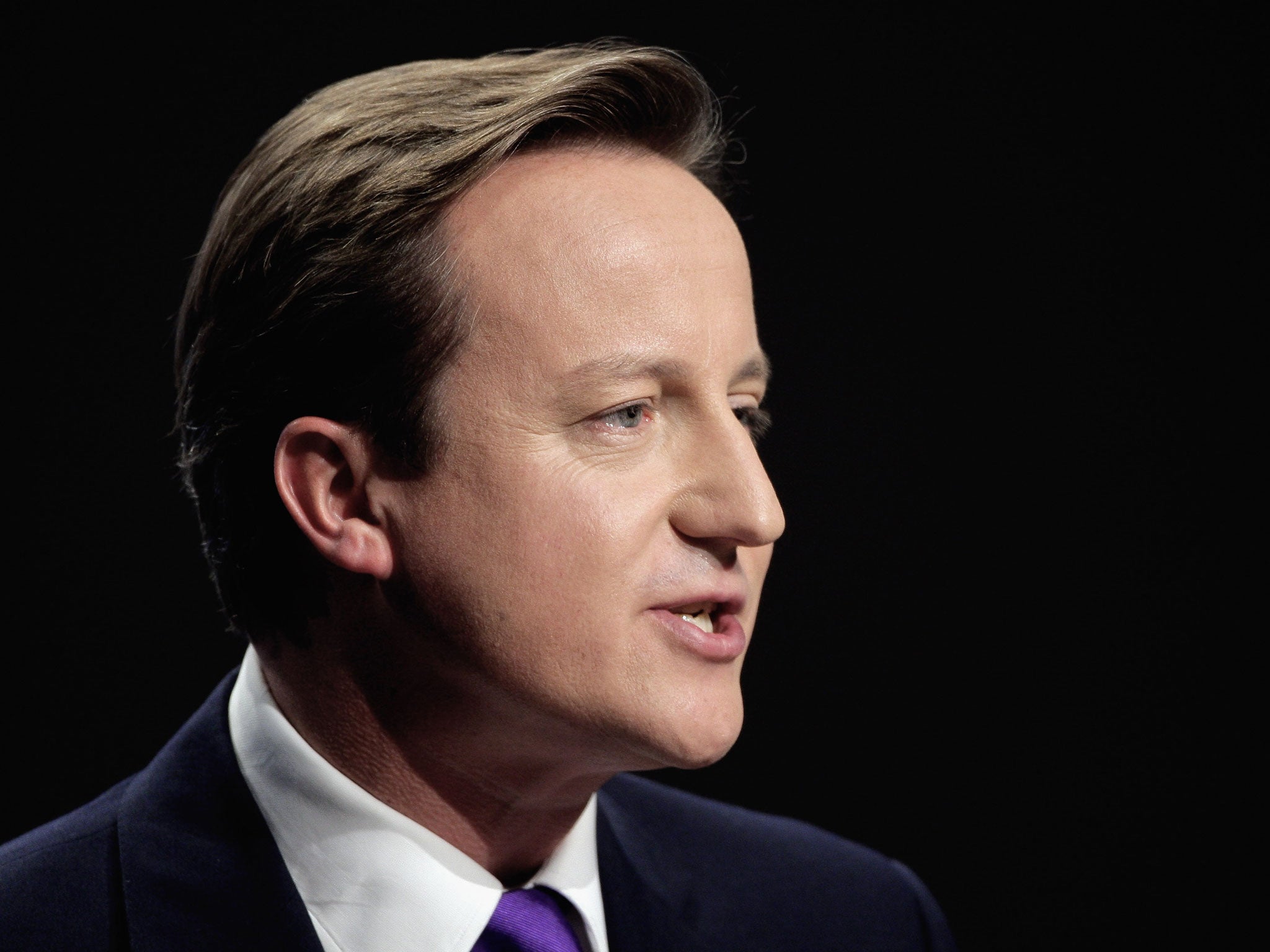David Cameron to lead Conservative demands for in-out referendum on EU membership
Show of unity for poll by the end of 2017 will increase pressure on Labour to match the move

Conservative MPs led by David Cameron will close ranks today around plans for an in-out referendum on European Union membership.
They will bury their differences over Europe when they back a backbench MP’s Bill – supported by the Tory leadership – to hold a poll by the end of 2017.
Their show of unity will increase pressure on Labour to match the move. Tensions in opposition ranks were underlined when a shadow minister, Ian Austin, called for a referendum on membership – possibly as early as next year.
Ahead of today’s Commons debate, industry leaders warned that businesses would be stranded “on the margins of the world’s largest trading bloc” if Britain left the EU.
The Confederation of British Industry poured cold water on the idea promoted by growing numbers of Tory Right-wingers that the UK could quit the EU and then negotiate an arms-length trading relationship with the union.
It said British businesses would still have to abide by the EU’s rules at the same time as the country had lost its power to influence them.
The CBI also argued that departure could leave business facing a lengthy period of uncertainty and a potential delay of up to a decade to gain access to the single European market.
Tory chiefs believe today’s Commons debate has helped resolve Conservative differences on the divisive issue and puts Labour and the Liberal Democrats on the defensive.
Last night David Cameron hosted a hog roast for Conservative MPs who are under a three-line whip to attend today’s vote.
In a message to party activists, he said: “The Bill has my full support – and it has support from across the Parliamentary Party: Ministers and backbenchers; Conservatives of all views. We are united behind it and together we will vote for it.”
The Bill is being championed by James Wharton, the MP for Stockton South. It would force ministers to draw up detailed proposals by the end of 2016 for a referendum the following year. Failure to do so would leave them open to judicial review.
Mr Wharton admitted his measure could not bind the hands of the next parliament, which could pass a Bill to overturn his measure. But he argued: “It would be politically very difficult for the next parliament to say we are going to refuse the British people a say on this important issue.”
In its new report, the CBI focuses on the suggestion from supporters of Britain’s exit from the EU that the country could negotiate a relationship with the bloc similar to that adopted by Norway or Switzerland.
Drawing on contacts with major companies in the two countries, it said: “The CBI rejects the notion that these models would be better for the UK, arguing that British businesses don’t want to find themselves at the margins of the world’s largest trading bloc operating under market rules over which they have no influence.”
Norway is a member of the European Economic Area (EEA) agreement under which it operates within the EU economic area without being an EU member.
Opting for that “would not solve any of the challenges of the UK’s current relationship with the EU,” the CBI said. “It would mean that businesses would still have to follow EU rules, while at the same time it would remove the UK’s ability to protect our national interests by relinquishing our seat at the table in Brussels.”
Switzerland, by contrast, has negotiated 120 agreements with the EU giving it access to the single market, some of which took up to six years to clinch.
That would be unattractive for Britain, the CBI warned, as “it would potentially mean a long period of uncertainty during negotiations over market access, with no guarantee of the UK getting what it wants, before ultimately becoming a standards taker with limited influence”.
Join our commenting forum
Join thought-provoking conversations, follow other Independent readers and see their replies
Comments
Bookmark popover
Removed from bookmarks